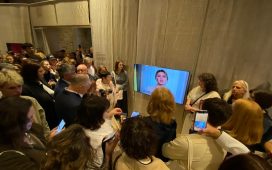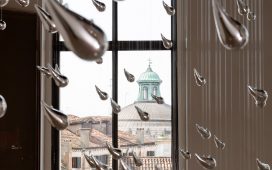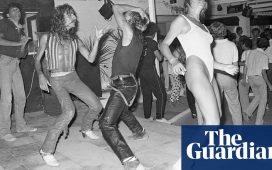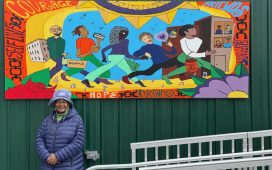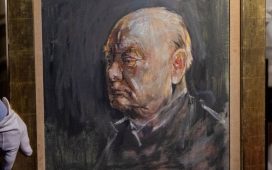The artist and activist Yulia Tsvetkova is facing criminal charges for publishing pornography
Ann Khodyreva/Facebook
Yulia Tsvetkova, a 27-year-old Russian LGBTQ activist artist who faces up to six years in prison on criminal charges for distributing pornography over the internet, declared a hunger strike on 1 May.
The images, posted on the feminist social media group The Vagina Monologues, also includes abstract images of female genitalia intended to promote body positivity. She is demanding that her trial, which began on 12 April in Komsomolsk-on-Amur in Russia’s Far East, must be made accessible to the public and not dragged out indefinitely. Tsvetkova has been battling charges since 2019 and has spent time under house arrest.
“My requirement is simple,” Tsvetkova wrote on the Facebook page of her mother Anna Khodyreva. “I ask the state to “be a man’.” It was Tsvetkova’s first public post in eight months.
“Do you want to judge me?”, she wrote. “You are welcome. But do it openly. I demand that my trial be opened to the public, as the reasons for closing it are far-fetched.” She also spoke out for others: “My case is not unique.”
On 31 March, Khodyreva, who has been a vocal advocate for her daughter, posted on social media that the court had ruled that the trial would be closed to the public because “intimate” details might be discussed and “pornographic” materials examined.
Last month, the jailed opposition politician Aleksey Navalny held a 24-day hunger strike demanding access to independent medical specialists. He appeared gaunt in a court hearing last week. In February 2020, Russia’s Human Rights Memorial Center recognised Tsvetkova as a political prisoner. The Stedelijk Museum in Amsterdam announced last October that it had acquired her drawings.
In a statement on 9 April, Amnesty International said: “the Russian authorities must stop trying to hide this Kafkaesque absurdity behind closed doors” and guarantee artistic freedom.
“Am I scared?,” wrote Tsvetkova in her Facebook post. “I supposed I am. But I don’t have much to lose. My health was ruined some time ago already. Thanks to the action of the state, I have almost no ties to work, colleagues or friends. I have only my dignity, and now I am glad that I am doing what my conscience says.”
• For more on artists’ involvement in the feminist movement in Russia, listen to our podcast

